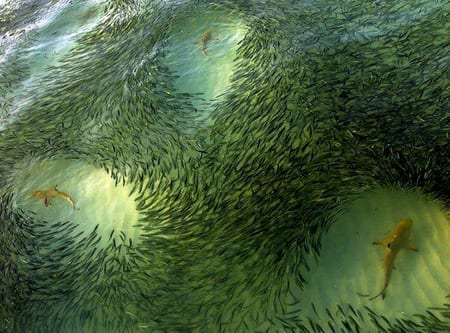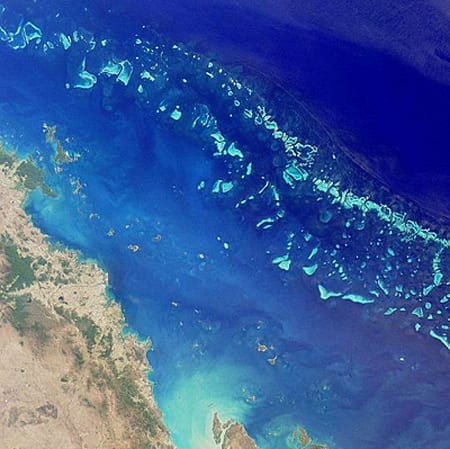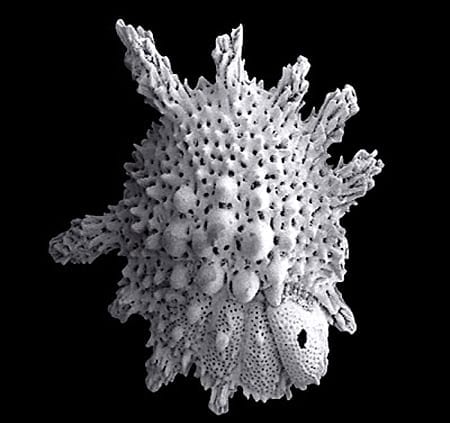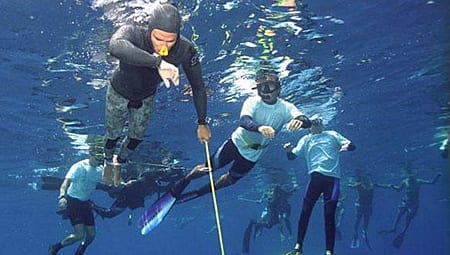By Daniel de la Calle
 ≈≈≈Marine researchers from around the world are in Cairns, Australia, this week for the 12th International Coral Reef Symposium (July 9-13):
≈≈≈Marine researchers from around the world are in Cairns, Australia, this week for the 12th International Coral Reef Symposium (July 9-13):
“From Cairns, 2,600 scientists have signed a Consensus Statement on Climate Change and Coral Reefs.
The consensus statement calls for a worldwide effort to overcome growing threats to coral ecosystems and to the livelihoods of millions of people who depend on them. It is urging immediate action to stave off what the scientists are calling “escalating damage” to coral reefs, as a result of rising sea temperatures, ocean acidification, overfishing and pollution from the land.
The World Resources Institute has also just published a new report called Reefs at Risk Revisited in the Coral Triangle. The report, a map-based analysis of threats to coral reefs around the world, particularly hones in on the countries of the Coral Triangle – Indonesia, Malaysia, Papua New Guinea, the Philippines, Solomon Islands, and Timor-Leste.
According to the report, more than 85% of reefs within the Coral Triangle region are threatened by local stressors, such as overfishing, pollution, and coastal development.
Speaking from Cairns at the ICRS2012, Jeremy Jackson, a senior scientist from the Smithsonian Institution, said reefs globally have seen severe declines in coral cover over several decades.
In the Caribbean, for instance, he said 75-85% of the coral cover has been lost in the past 35 years.
Jackson, the 2012 recipient of the Darwin Medal, said that even Australia’s Great Barrier Reef, one of the best-protected reef ecosystems on the planet, has experienced a 50% decline in coral cover in the past 50 years.

Satellite image of part of the Great Barrier Reef adjacent to the Queensland coastal areas of Airlie Beach and Mackay. Image by Wikimedia Commons
.
Jackson said climate change is making this already rapid decline of coral reefs worse. He also touched on how climate change is causing increased droughts, agricultural failure and sea level rises at much faster rates.
”That means what’s good for reefs is also critically important for people and we should wake up to that fact,” Jackson said. “The future of coral reefs isn’t a marine version of tree-hugging but a central problem for humanity.”
According to the marine experts, coral reefs provide food and livelihood for many tens of millions of coastal inhabitants globally, as well as having tourism spin-offs. The scientists estimate that reefs provide upwards of US$170bn to US$375bn in goods and services globally each year.”
You can read the report HERE
SOURCE (www.siliconrepublic.com)
≈≈≈The Higgs Boson spent the last few days being the center of media coverage, but must confess that neither had I ever heard about it before nor did I understand much more after watching the news and doing some online reading. The following video has proven most helpful for me so far, so I include it in our blog as public service to all those in my situation:
Considering most of the research has been carried out at CERN’s Large Hadron Collider you might also want to watch and dance to this popular rap-music video clip about the 27k subterranean facility:
≈≈≈The University of São Paulo in Brazil has organized a short three-day course between December 4-6, 2012 titled “Studying Ocean Acidification and its Effects on Marine Ecosystems”. Speakers include Andrew Dickson, from Scripps Institute of Oceanography, Chris Langdon, University of Miami, Joanie Kleypas, National Center for Atmospheric Research, Lisa Robbins of the US Geological Survey and Sarah Cooley, from the Woods Hole Oceanographic Institution.
More info HERE
≈≈≈Www.barelyimaginedbeings.com hosts the blog for an upcoming book titled “The Book of Barely Imagined Beings”, by Caspar Henderson.
“Most real creatures that we think we know embody wonders we have hardly dreamt of. And there are other beings, equally real, which for most of human experience have been beyond imagining. As the Chinese philosopher Zhuangzi wrote about 2,300 years ago, “all the creatures in this world have dimensions that cannot be calculated.””

“Planktonic forams floating in the upper levels of the oceans sequester about one quarter of all carbonate produced in the oceans each year.”
≈≈≈Whole Living proposes “five easy (and scientifically proven) ways to cut carbon and save money”:
1. Drive a more fuel-efficient car can translate in $18,000 savings over the car’s lifespan.
2. Using LED bulbs instead of conventional ones. You get the same light for 15% of the electricity (saving $100 annually).
3. Washing clothes in cold instead of hot water (another $100).
4. Power strips curb “phantom loads” and reduce the electricity bill (just a strip for the printer can save $130 a year).
5. Sealing and insulating the house properly. Air leaks can be responsible for 15 to 25% of your heating and cooling.
SOURCE
≈≈≈How long can you hold your breath for underwater? A minute? Two? And what do you think the world record in static apnea might be? 1, 2, 5, 10, 15 minutes?
In early June German free diver Tom Sietas, 35, set the new world record competing with former world record holder, Brazilian Ricardo Bahía, by holding his breath for 22 minutes and 22 seconds (no typo). People can also accomplish incredible things underwater.
SOURCE


